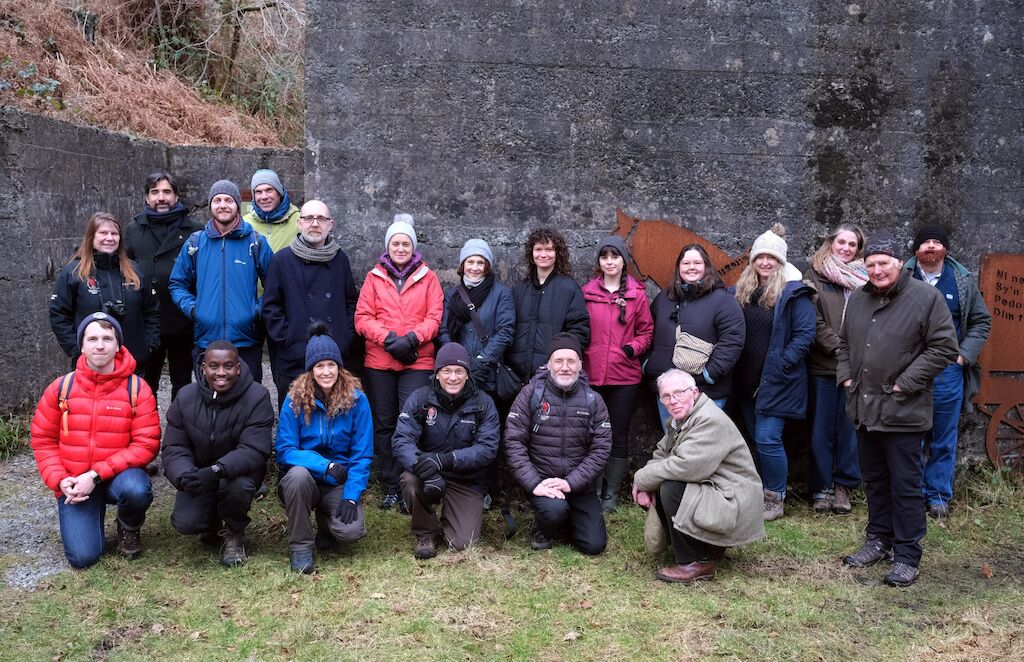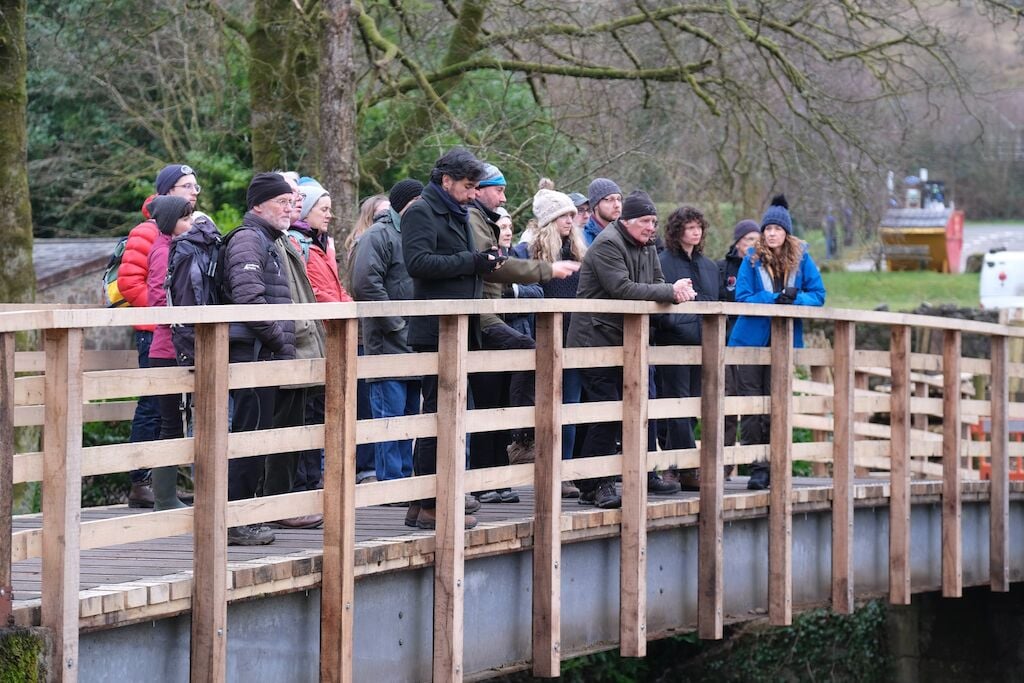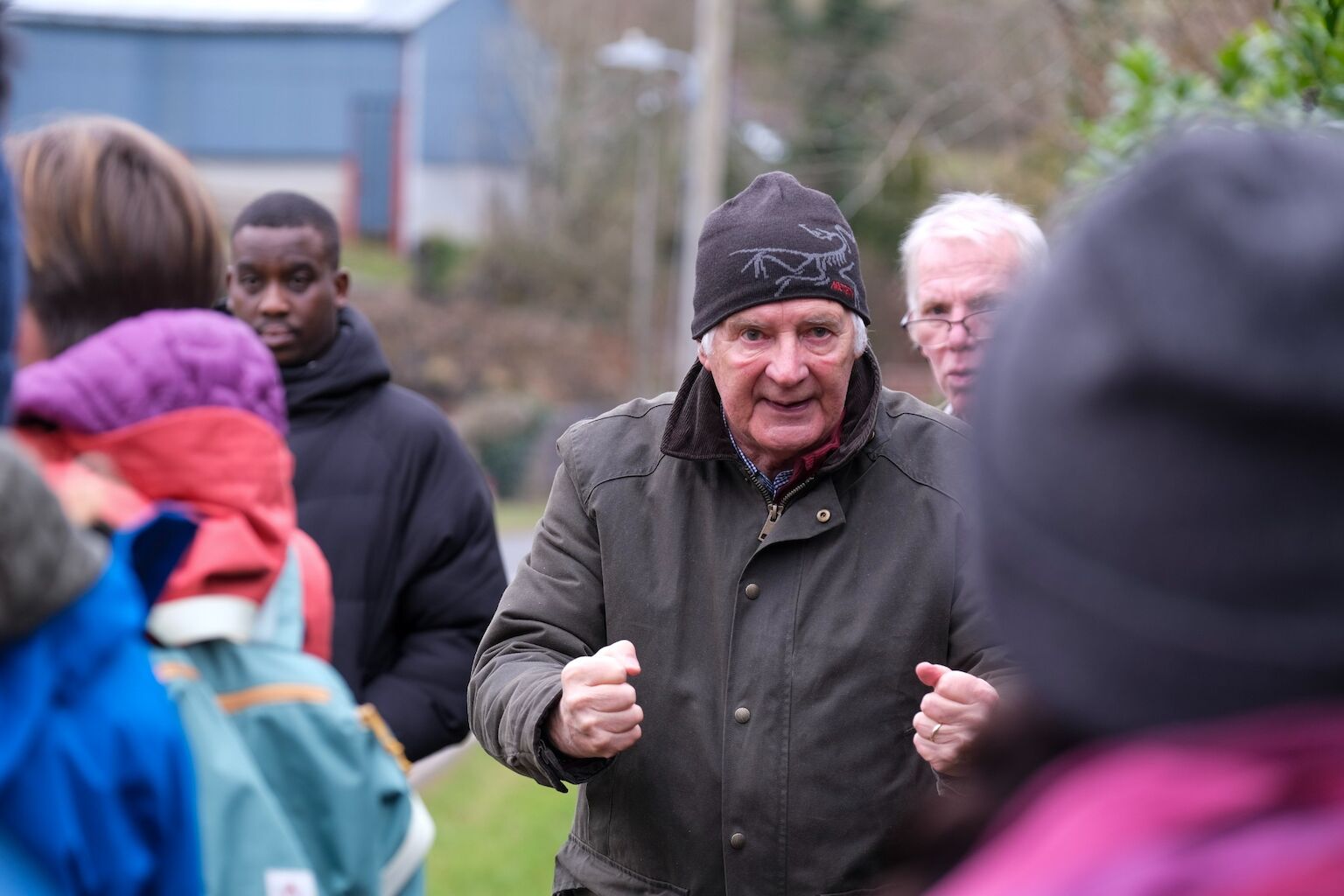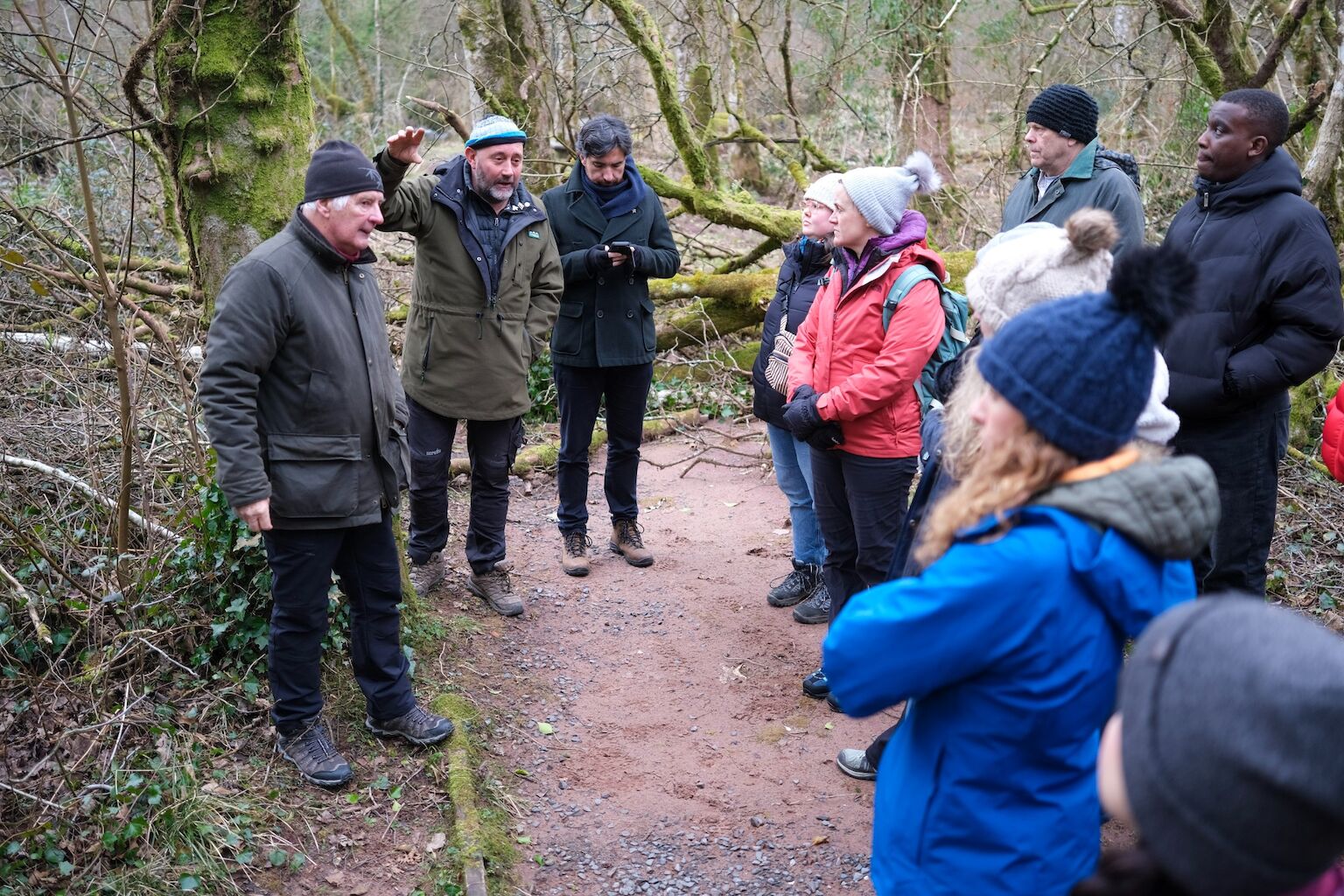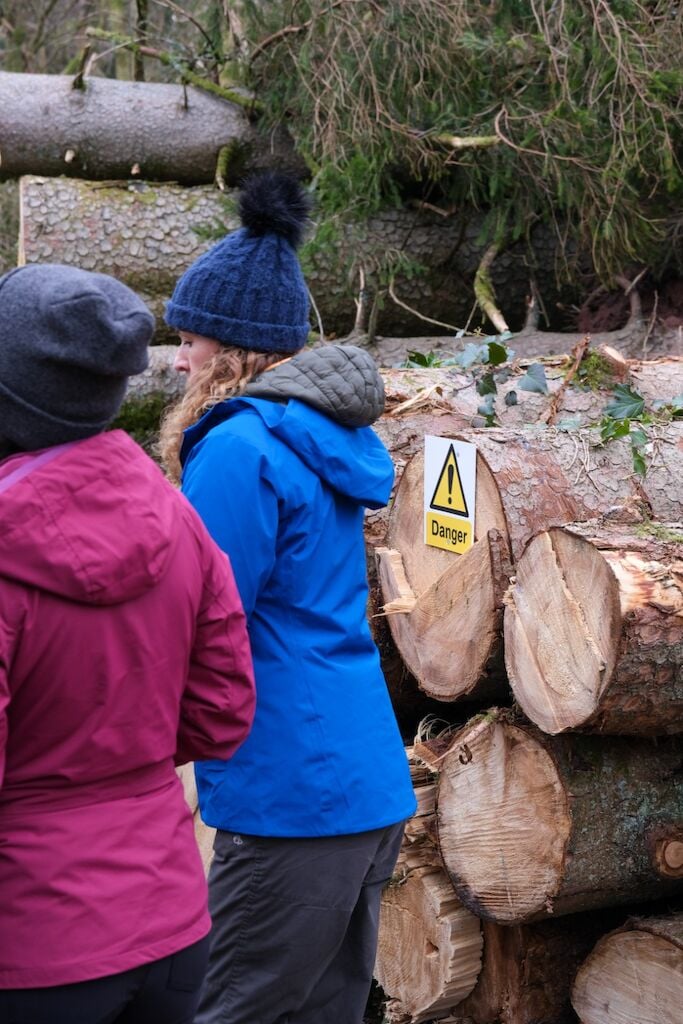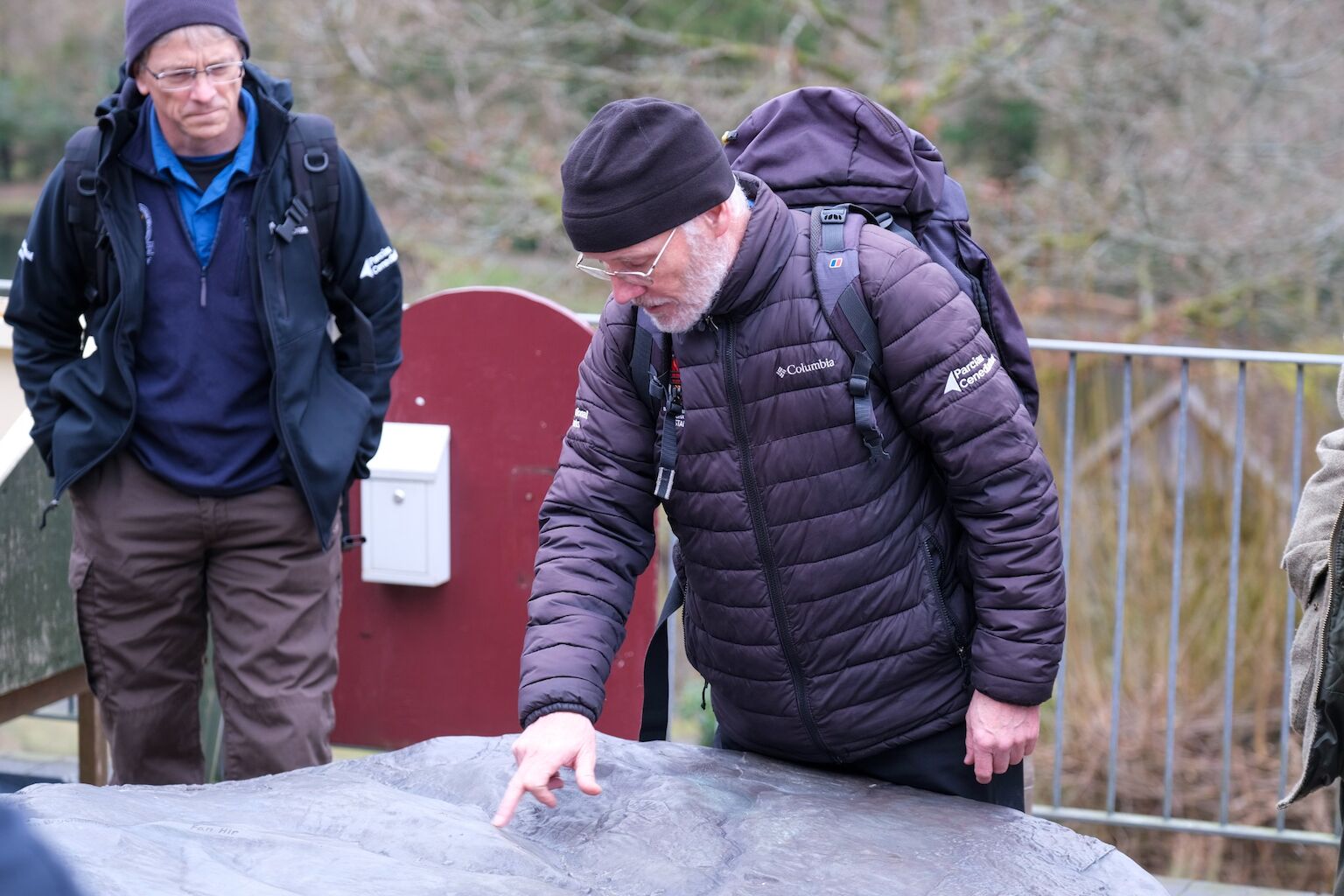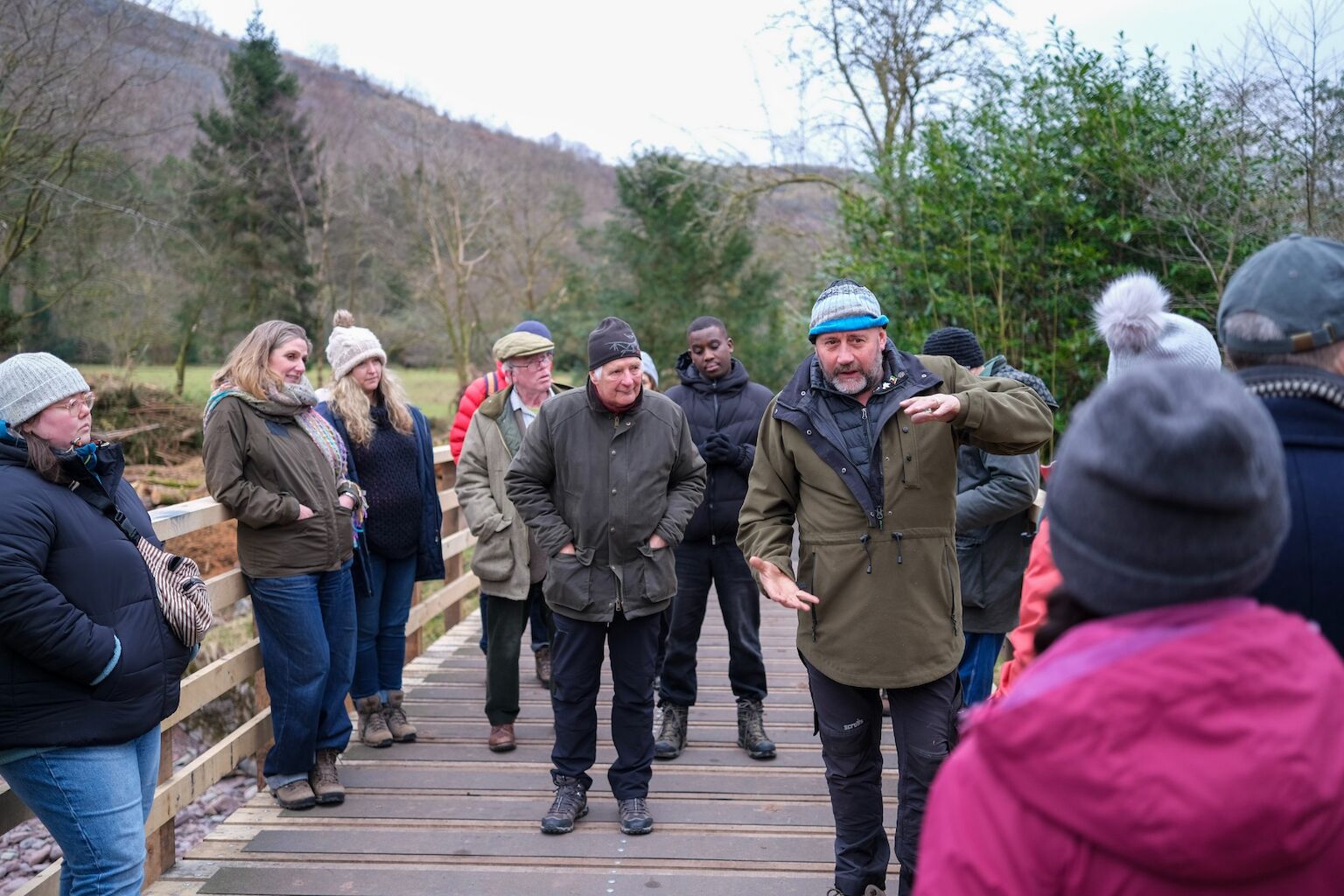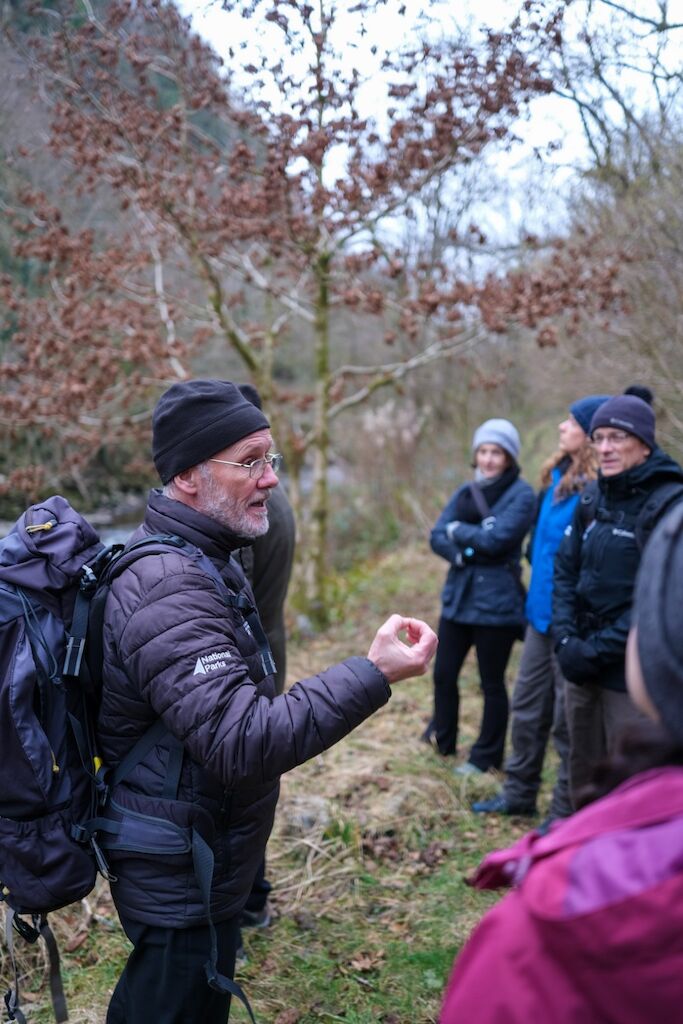As one of three CCUH pilot site locations, the team at Fforest Fawr - based at Bannau Brycheiniog National Park Authority (BBNPA) - welcomed wider project colleagues from North Devon Biosphere, Hadrian’s Wall World Heritage Site, UKNC staff, and members of our consultancy teams and project Steering Group for a series of collaborative sessions and local field visits, designed to enable cross-project knowledge sharing and reflection.
Climate Change & UNESCO Heritage Project site visit to Fforest Fawr UNESCO Global Geopark
Earlier this month, our Climate Change & UNESCO Heritage (CCUH) project community gathered in Brecon, Wales as part of a two day project visit to Fforest Fawr UNESCO Global Geopark.
Exploring the Geopark
To help understand and appreciate the range of climate change effects currently being experienced across the Geopark, the group visited Craig-y-nos Country Park, where Park Manager Paul Chapman demonstrated the scale of disruption caused by recent severe storm activity.
With over 150 trees lost since Storm Darragh hit the region in December 2024, the challenges presented by our changing climate for both day-to-day management and future decision-making have been brought into sharper focus. Yet the team is determined to draw out the opportunities such weather events offer too, such as unlocking new educational and engagement experiences to benefit the local community and country park visitors, and exploring new ways to think about the sensitivities and future management needs of the site.
Later in the visit, Geopark Development Officer, Alan Bowring, and Scientific Director, Tony Ramsay, led the project community on a tour of the Pontneddfechan Gunpowder Works to further discuss and observe impacts and changes of note across the site’s geological, natural and historic environment.
Emerging project impacts and future planning
As part of the key sessions hosted at BBNPA headquarters, Fforest Fawr Pilot Project Manager Toby Pitts set out some of the areas of change the team has observed and experienced through their involvement in CCUH to date. This has included the development and strengthening of stakeholder networks and new methodologies, the potential offered by data tooling to support research and engagement, and the emerging possibilities around scalable work beyond the Geopark boundaries and into the wider National Park area.
As the CCUH pilot moves into its final five months of delivery, the group discussed opportunities to extend the value of the learning captured to date to benefit the wider UNESCO site network, through a horizon scanning activity around the project’s expected outputs and legacy.
The CCUH project community will meet again in May, for a final cross-site gathering hosted by North Devon UNESCO Biosphere Reserve.
The UK National Commission for UNESCO would like to thank Toby Pitts, Melusi Moyo, Alan Bowring, Liz Hutchins, Tony Ramsay, Paul Chapman and the wider Bannau Brycheiniog National Park Authority team for their hospitality and expert coordination. Diolch!

